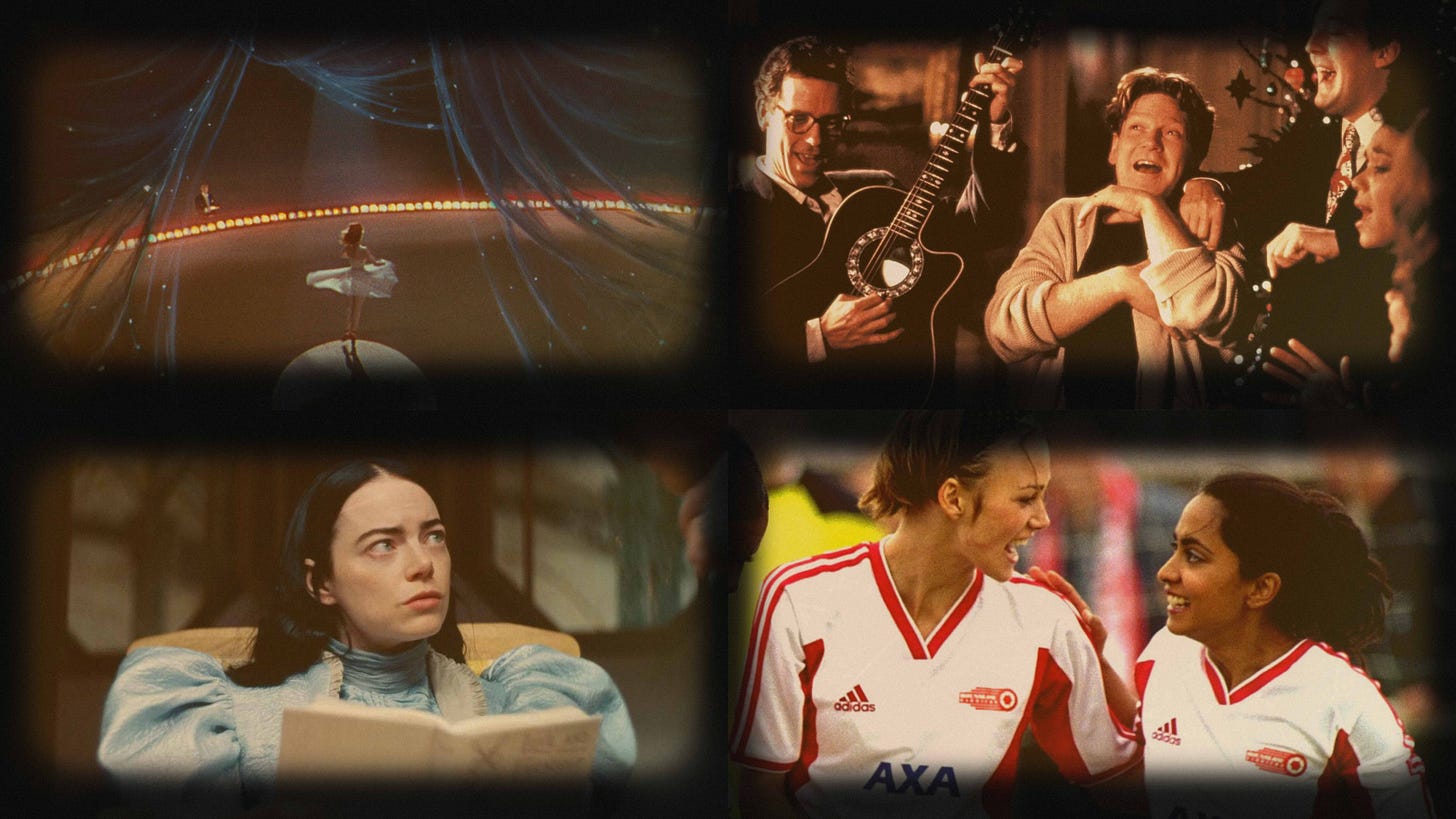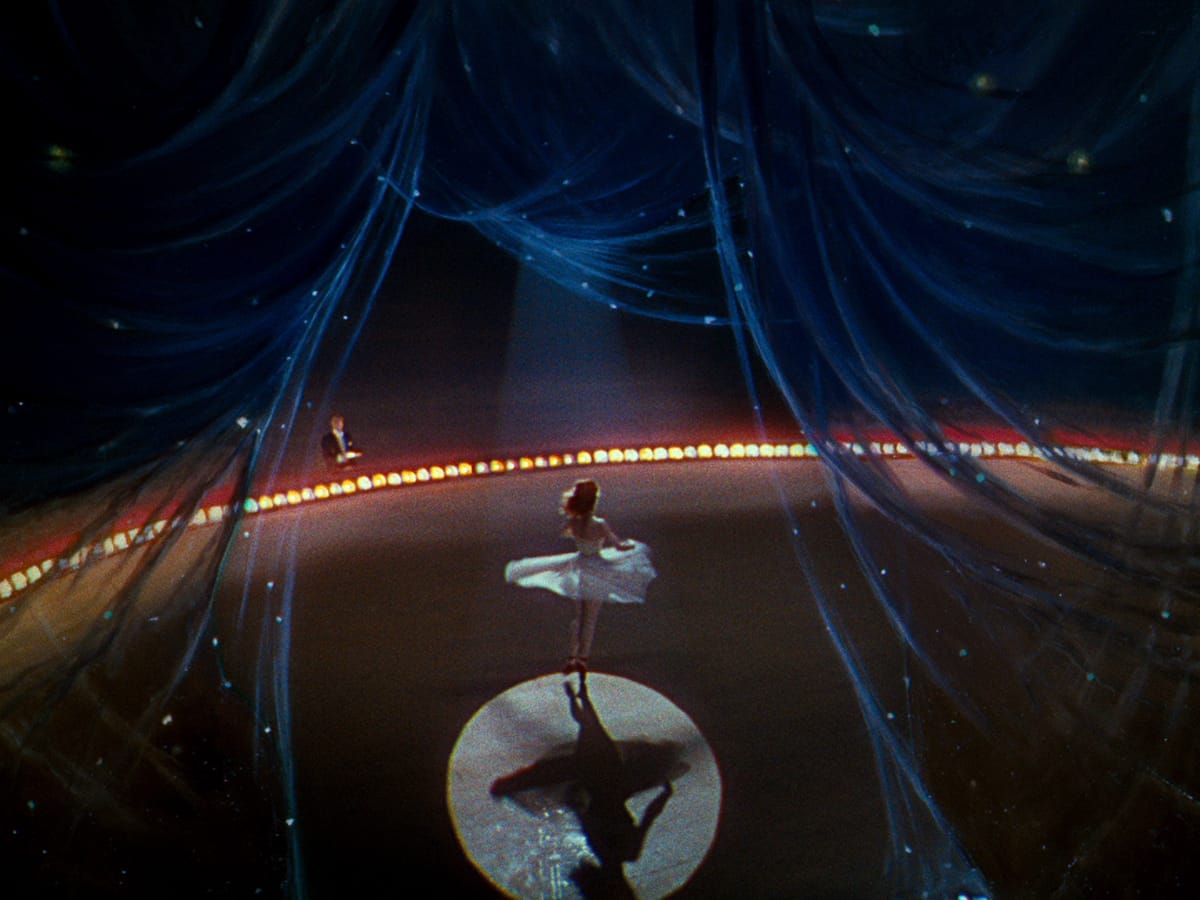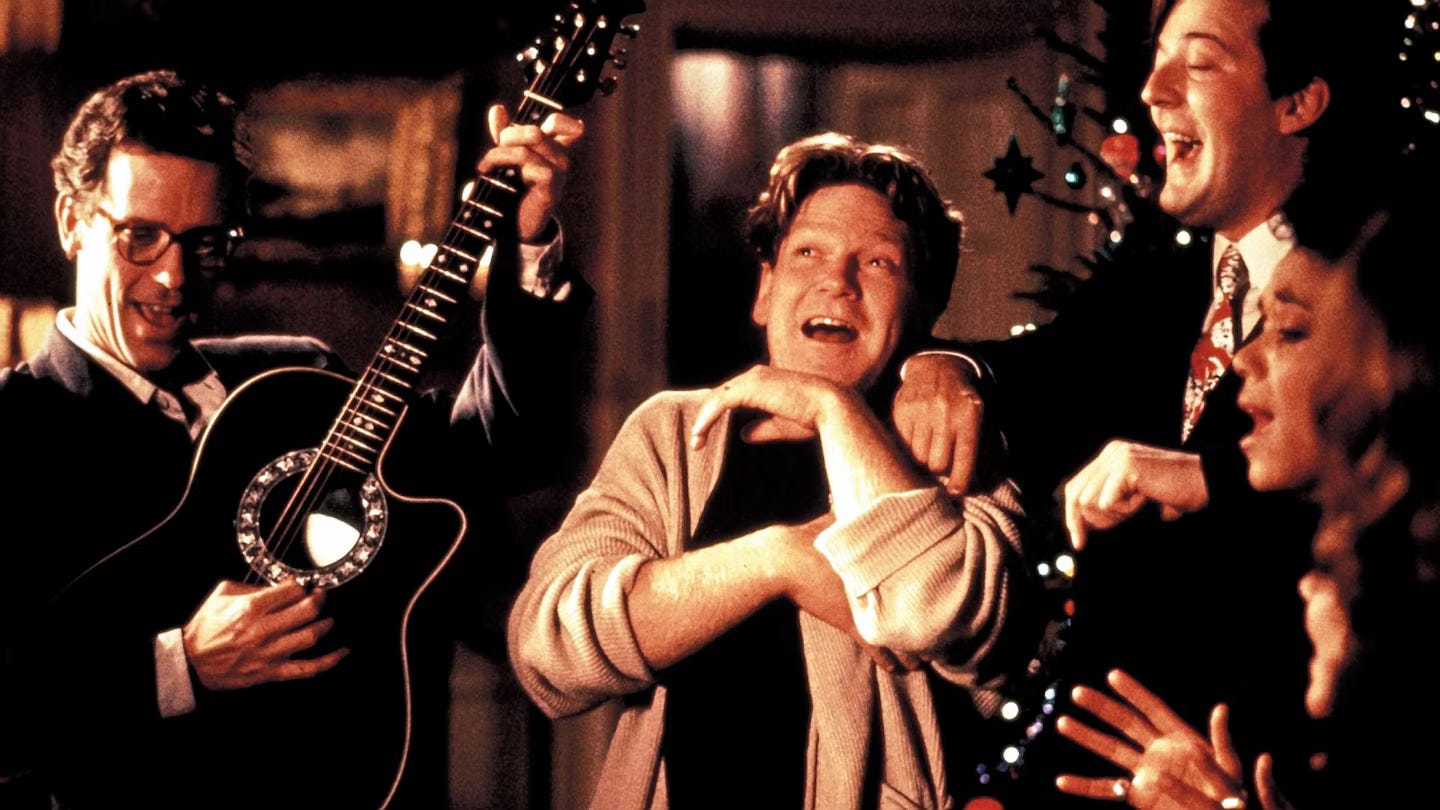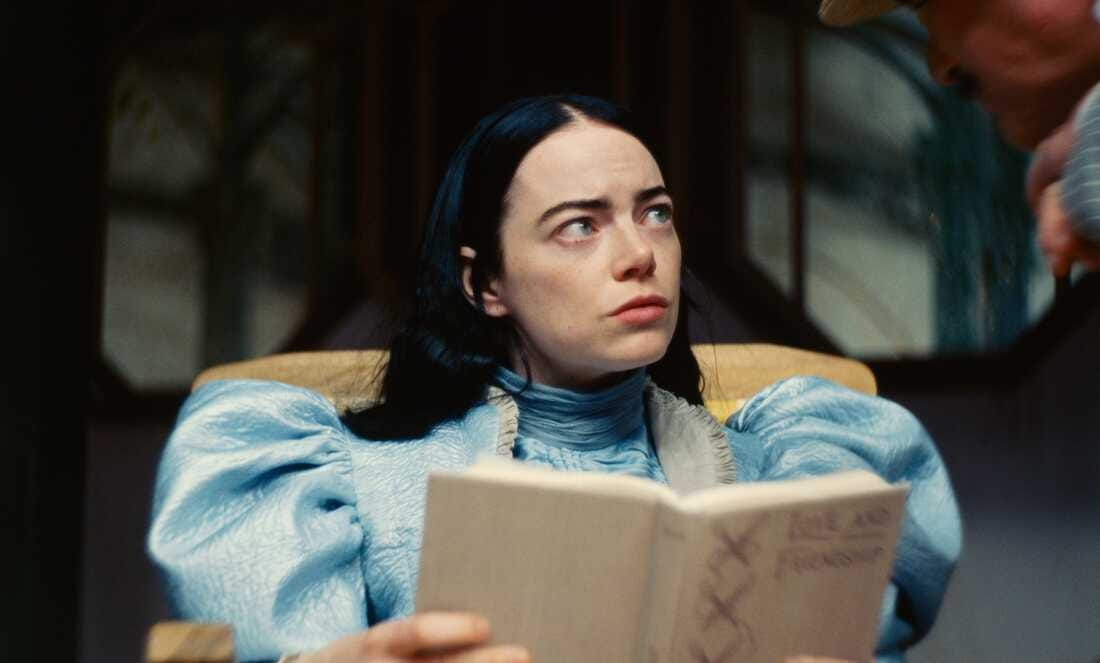A Small Celebration of British Cinema
To truly define British cinema, one must explore a vast range of films that reflect the country’s rich cultural tapestry, history, and evolving sense of identity. British filmmakers have long balanced realism with bold artistic innovation, addressing themes such as class, social inequality, and national identity, as well as taking on adaptions of folklore and history to stage plays and literature, tracing right back to the first British films of the 1880s. With such a deep and diverse cinematic legacy, pinpointing a select few movies encapsulating British cinema's essence is no easy feat. Nevertheless, particular works have captured the spirit of their time and left a lasting mark on the global film landscape.
The Red Shoes, 1948
Dir: Emeric Pressburger, Michael Powell
Screenplay: Emeric Pressburger, Michael Powell, Hans Christian Andersen, Marius Goring, Keith Winter
Michael Powell and Emeric Pressburger’s The Red Shoes tells the story of Victoria Page (Moira Shearer), a young ballerina caught between her passionate love for a man and her single-minded ambition to become a prima ballerina. Adapted from Hans Christian Andersen's 1845 fairy tale, the film initially struggled to find support, partly due to its evocation of fantasy versus realism and the inherent challenges of translating ballet to cinema. The technical complexity of dance, its often unrealistic portrayals, and superficial art form treatment have usually made the genre challenging to sell. Yet, Jack Cardiff’s breathtaking cinematography and the film’s deeply immersive emotional journey allowed it to endure, elevated by the importance of using authentic dancers—Moira Shearer, who was then a dancer with Sadler's Wells, Léonid Massine, former choreographer for Diaghilev’s Ballets Russes who played Grischa Ljubow as well as Robert Helpmann.
Over time, The Red Shoes has become a classic, influencing the "tortured artist" trope in cinema, where the pursuit of artistic greatness clashes with self-fulfilment. It is an artistic obsession portrayed in striking Technicolor that develops in intensity as the film follows suit, and a film that blends this beauty with reality against a mostly tight screenplay.
Its legacy endures as one of the most visually stunning and emotionally rich films, leading to a 4K digital remaster in 2009 with an uncompressed monaural soundtrack. Powell and Pressburger, known for works like The Tales of Hoffmann (1951) and Black Narcissus (1947), have cemented their place in British cinema history and shaped how we marry dance and theatre with film today.
Peter’s Friends, 1992
Dir: Kenneth Branagh
Screenplay: Rita Rudner, Martin Bergman
Despite offering a reunion set in the idyllic English countryside, backed by a stellar ensemble cast with all the hallmarks of a cult classic in British cinema, Peter's Friends remains curiously absent from many significant critical conversations. This is likely due to its unconventional structure—six distinct storylines that intertwine to create a film that is both heartwarming and hilarious. These narratives go beyond mere surface-level interactions, delving into relationships' messy, raw complexities as the characters usher in the new year.
The characters are, for the most part, endearing, and while a hint of predictability sneaks in, it never entirely detracts from the story's charm. But genuinely great cinema transcends technicalities. It's in the details: lashings of rich, creamy soup and red wine, a quirky jingle peppered with various London Underground stations, and, of course, the cosy knitwear—all of which anchor the film in its distinctively British charm. Yet, there’s a delicate balance between nostalgia and more poignant themes, like a beautifully handled exploration of AIDS, that adds layers to the film’s emotional depth.
And then, there’s the dialogue—sharp, witty, and quintessentially British. Take Stephen Fry’s Peter, who quips, “It’s called a pot-belly, Andrew. We have those in England, along with culture.” These small touches elevate Peter’s Friends, giving it humour and heart, even if it remains a hidden gem in the pantheon of British cinema.
Bend It Like Beckham, 2002
Dir: Gurinder Chadha
Screenplay: Gurinder Chadha, Paul Mayeda Berges, Guljit Bindra
The importance of Gurinder Chadha’s Bend It Like Beckham is impossible to overstate. It’s a delightful, clever film that weaves the push and pull of Jesminder Bhamra’s identity, torn between her family’s culture and ideals and her audacious passion for football. It’s funny, heartfelt, and gloriously messy—the perfect blend of family drama, sports, and 90s nostalgia. At its heart, it’s sharp and witty and places British-Asian culture at the centre, exploring the complexities of immigrant life and what women are and aren’t allowed to do. During its release, it shook up the conversation about identity, religion, sexuality, and the role of women in sports. And now, more than twenty years later, it still feels as fresh and relevant as ever—still speaking to anyone who’s ever had to choose between who they are and who they’re told to be.
The characters feel authentic, and the film’s realism is never dull nor farce and quite highly enjoyable, whilst much of its charm stems from the characters, many of whom resonate with people from a range of cultural backgrounds, reflecting the shared family dynamics in the melting pot of the UK.
Ex Machina, 2014
Dir: Alex Garland
Screenplay: Alex Garland
Starring Domhnall Gleeson, Alicia Vikander, and Oscar Isaac, Ex Machina is a near-perfect screenplay that sees the testing of a humanoid robot against the neat and precise production design of Mark Digby (Slumdog Millionaire, Annihilation, Never Let Me Go).
This is a film of stark contrast, and the narrative not only juxtaposes the humanity of its characters with Ava's advanced artificial intelligence but also contrasts the vibrant, lush greenery and towering ice-capped mountains of the outside world with the stark, sleek, and sterile interiors where most of the story takes place. This deliberate contrast emphasises the tension between nature and technology, human emotion and machine logic.
In addition to its production design and casting, one of the film's strongest elements is a screenplay that works with parallel narratives with no plothole or extraneous iota of exposition or dialogue. Every line of dialogue and every scene is purposeful—as any film academic formula would suggest—adding depth to this rather stylish story that envelopes the audience in philosophical questions about consciousness, ethics, and the essence of being.
This meticulous attention to detail and storytelling ultimately contributed to Ex Machina's recognition as an Oscar-winning film, earning it praise and admiration from critics and audiences alike. Its thought-provoking exploration of artificial intelligence leaves a lasting impact, making it stand out in contemporary cinema and just as pertinent over a decade after its release.
Poor Things, 2023
Dir: Yorgos Lanthimos
Screenplay: Tony McNamara
One of the most talked about films of 2023 was Poor Things—a mammoth co-production between Ireland, the United Kingdom, and the United States and based, although somewhat loosely, on the novel by Alasdair Gray. While much of Gray’s book is not directly represented in the film, it provided a strong foundation for this Academy Award-winning adaptation.
Production designers James Price and Shona Heath hosted an industry session following the film's release, which delved into the vast collaborations that took place to create such a detailed and unique world for Bella Baxter (Emma Stone) and based on Yorgos Lanthimos’ brief of “make the world look like nothing has ever looked before.” This, it must be said, the film did incredibly well whilst so much of its charm can seem to be born from the ambiguity of era, the vulnerability, or perhaps even the freedom possessed by Bella Baxter, and the screenplay of Tony McNamara, whose ability to write female characters is highly notable.
Where Frankenstein meets euphoria, the impressive cast skillfully navigates nuanced language in this thrilling story that’s a delight both visually and thematically and despite facing mixed reviews, there's no denying that this piece of cinema is a breathtaking visual feast, brimming with wild creativity, salacious wit and impeccable framing.









